You won't believe the wild display LG unveiled at an even wilder party
LG shows off a stunning transparent OLED at the Guggenheim Museum
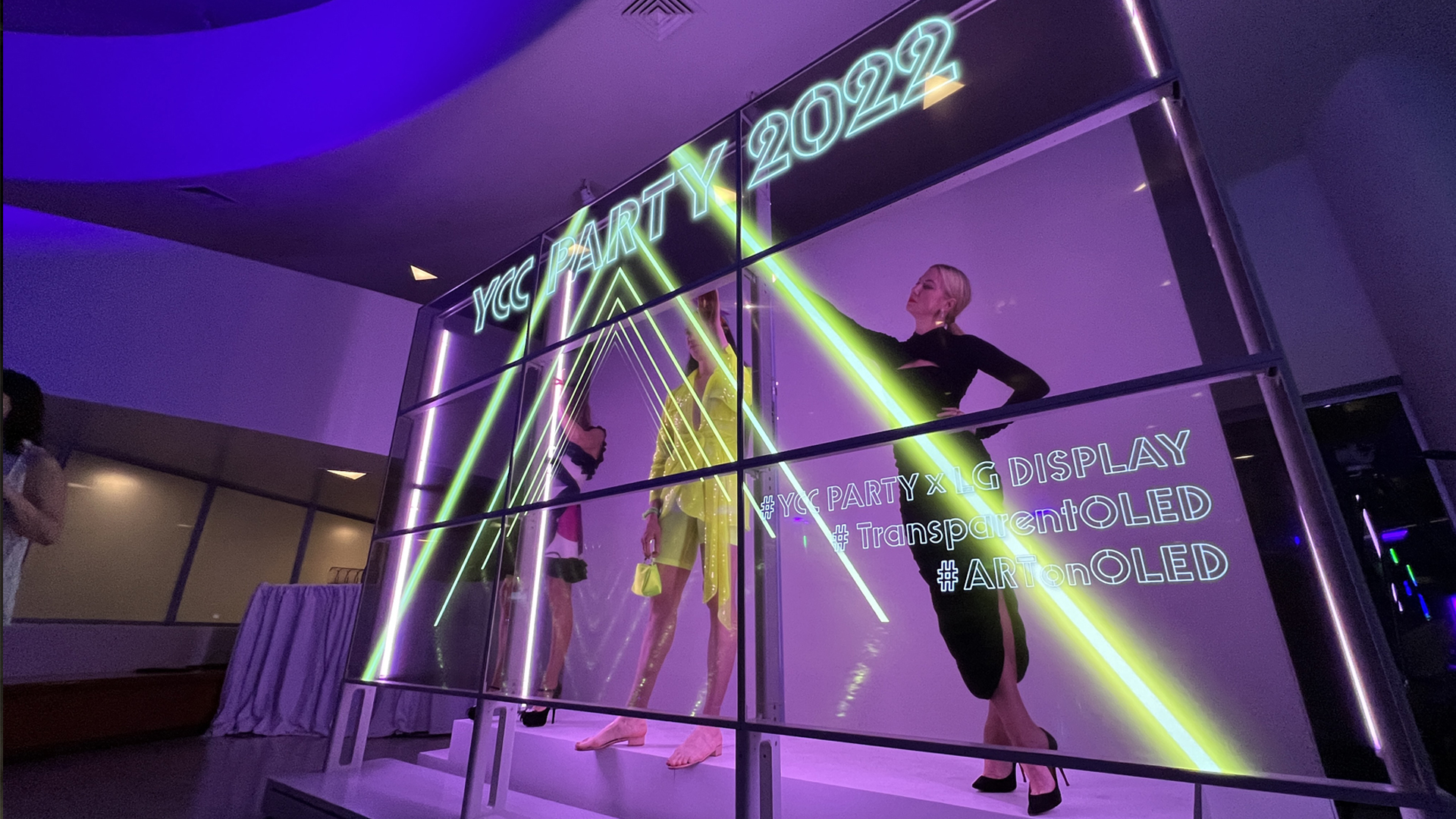
One might be forgiven for confusing the LG and Guggenheim Museum art and technology partnership kick-off party for a classy rave.
There were people in gold lamé jackets, drag queens, dozens of socialites in stilettos, high-camp hats. There was pulsating dance music, multicolored lights and copious amounts of alcohol. But near the center of The Guggenheim Museum's cavernous and iconic main hall was an unusual display that was attracting even those who had no notion of what it was or even why they were there - beyond enjoying a raucous, high-end NYC party.
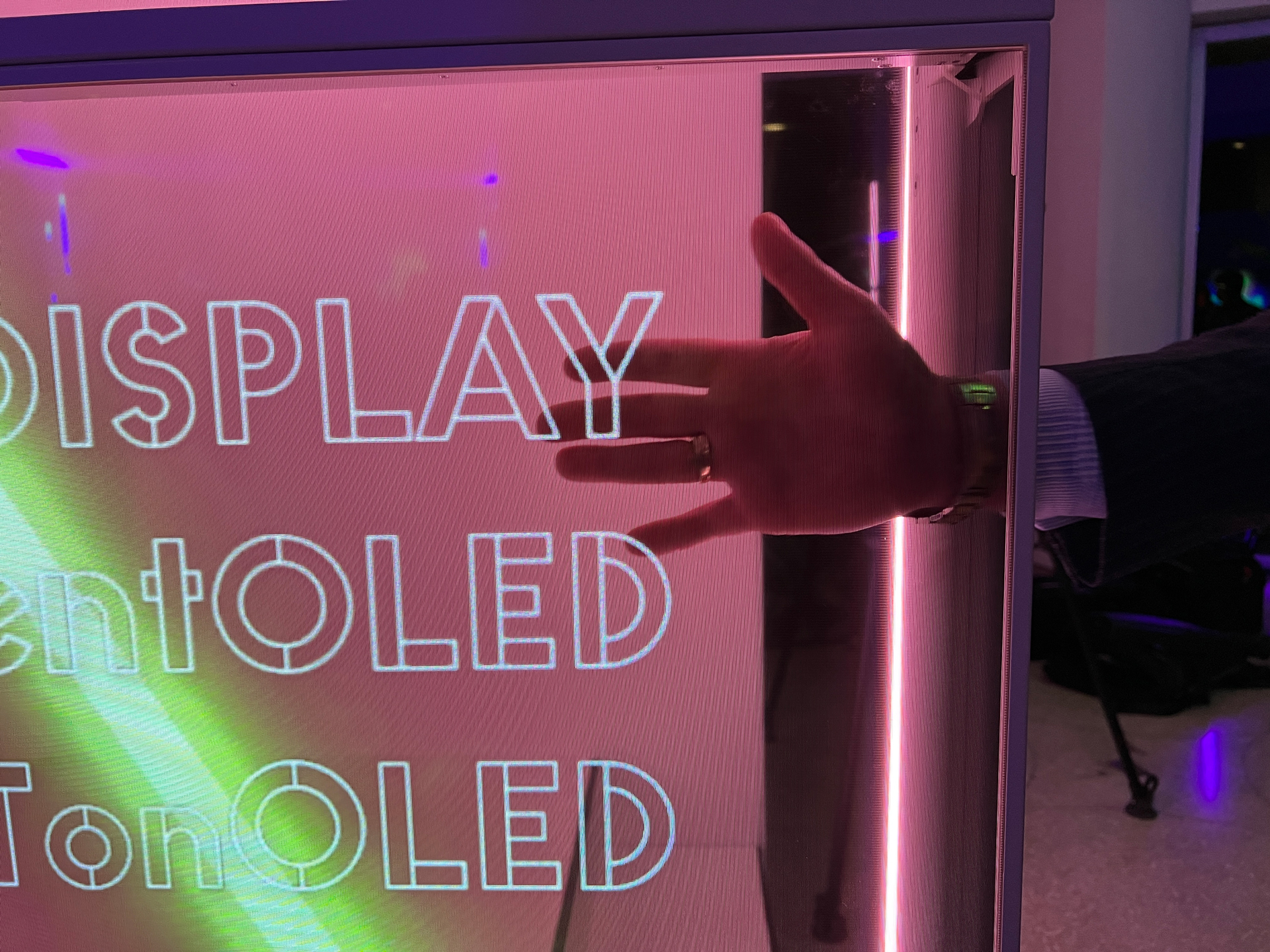
The display, actually six of them, was one of LG's. Set up like, naturally, an art installation on a slightly raised platform, the array of 55-inch, 40%-transparent OLED screens was, according to LG, making its world premiere here at the launch event.
For LG Display (a distinct entity from its parent company, LG Electronics), making flexible, transparent displays and putting them in unusual configurations is nothing new. The company basically makes art out of these mutable panels. At recent CES events, I've seen the displays roll away into boxes, curve into waves, and be bent into almost flower-like shapes. Transparent OLEDs are on the bleeding edge of that technology, but they have been showing up in retail spaces.
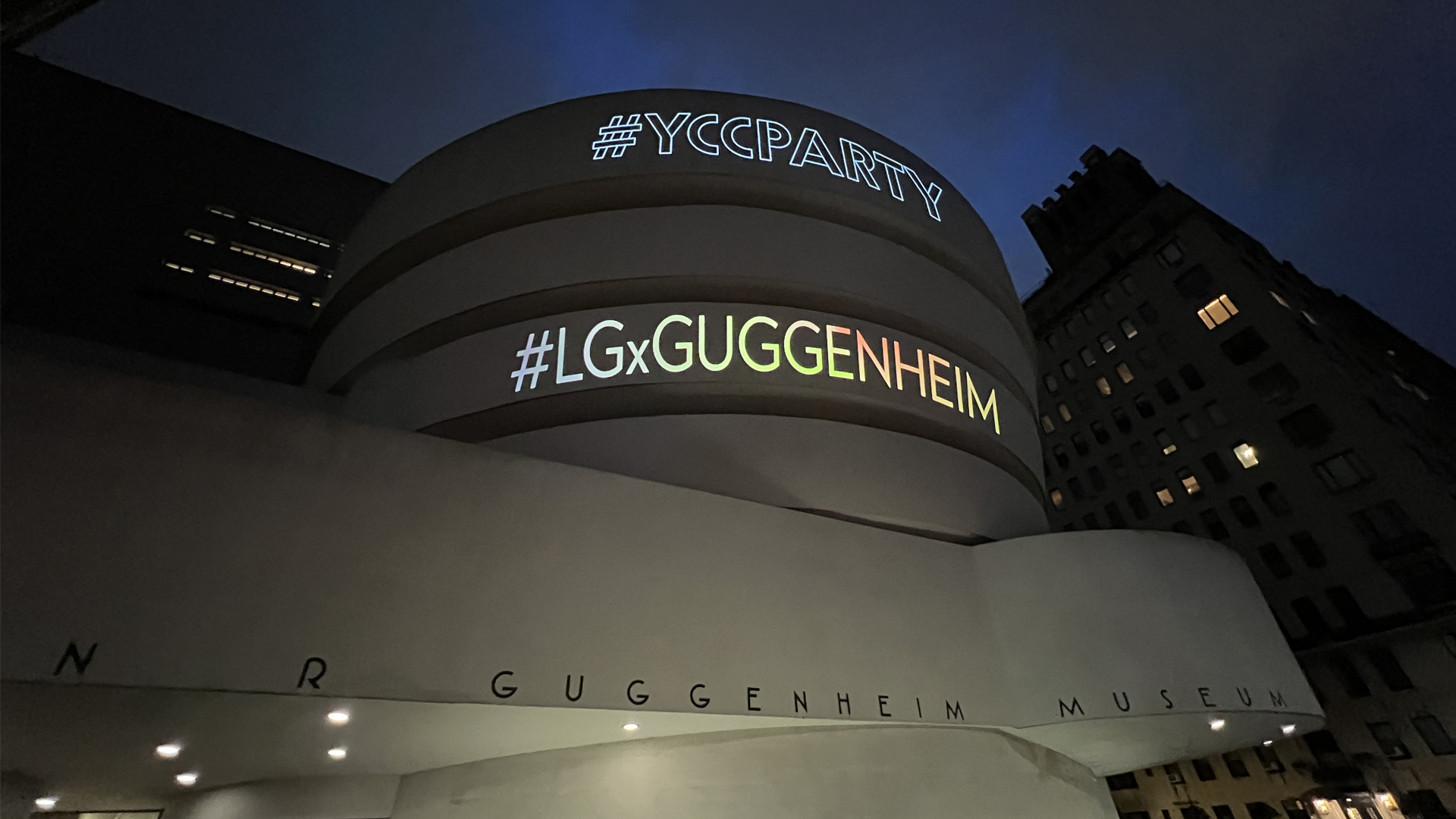
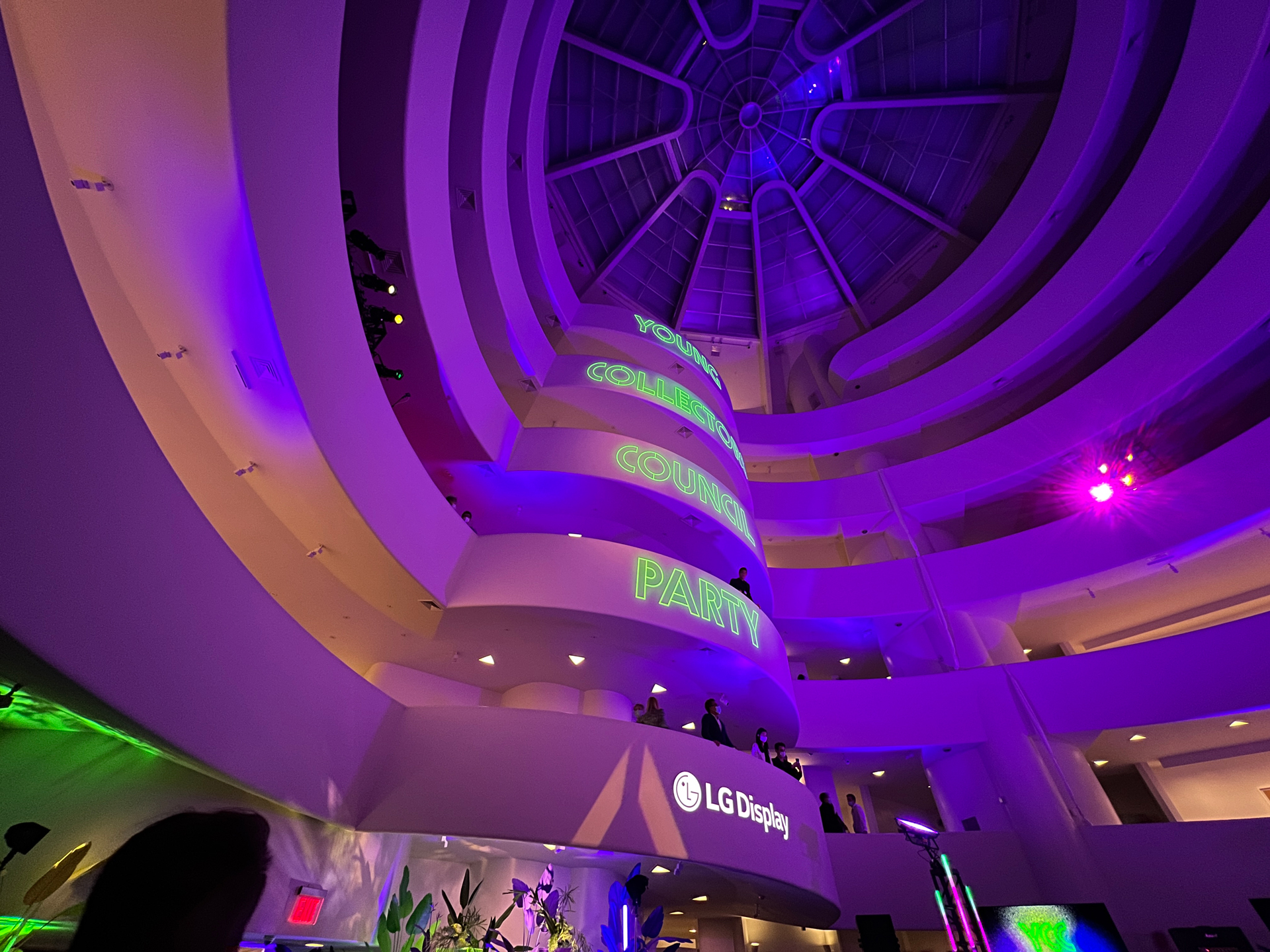
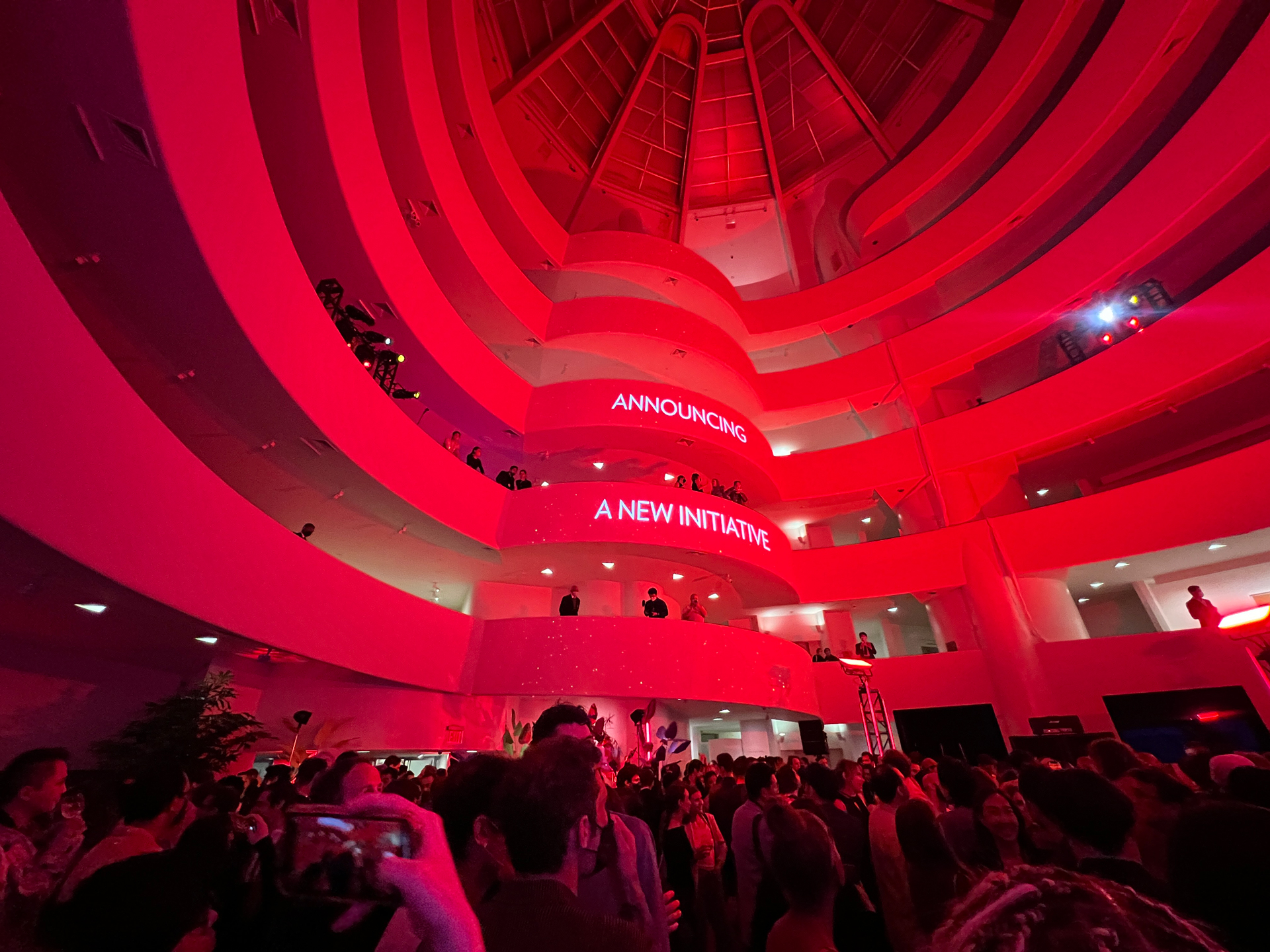
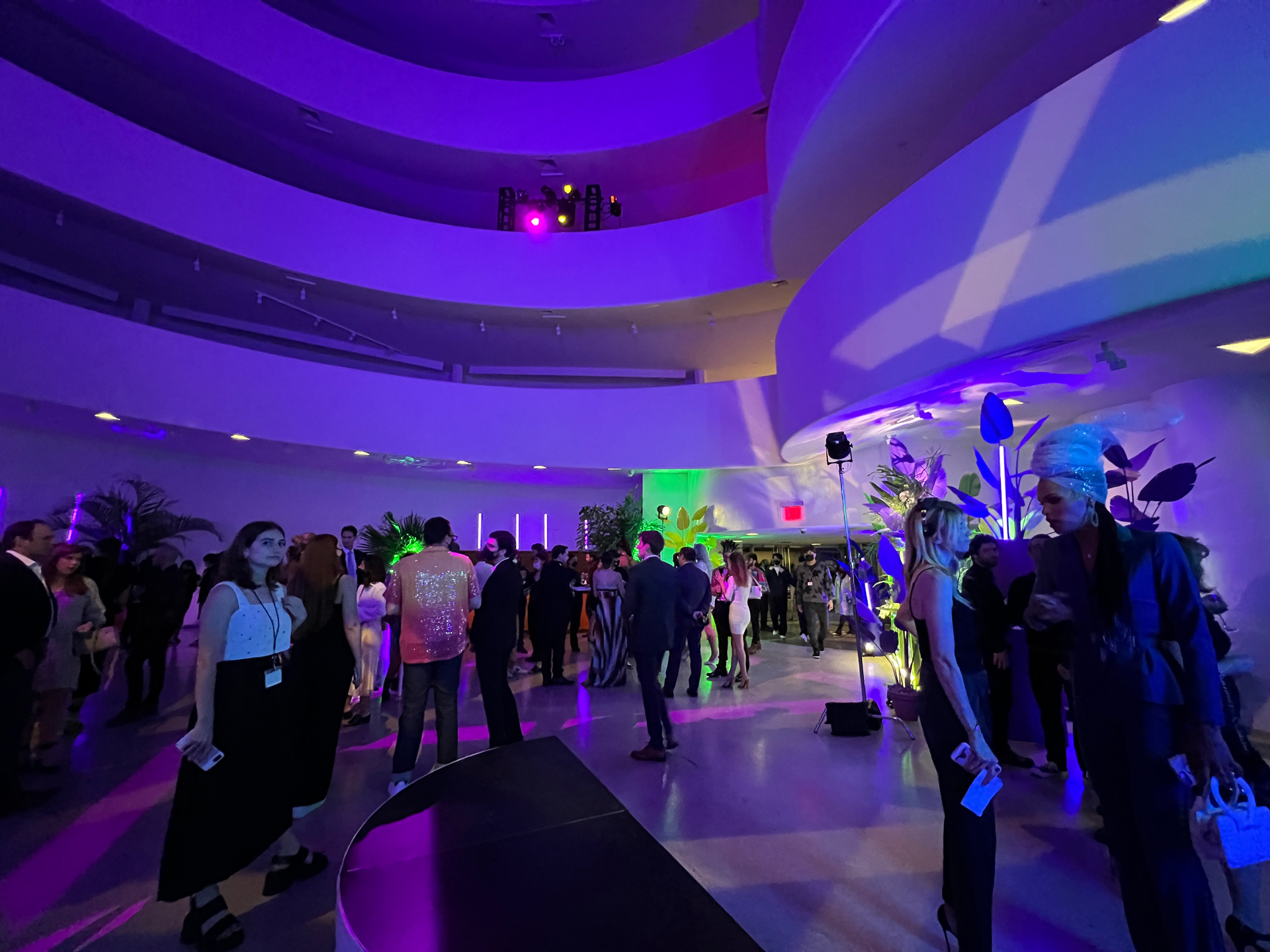
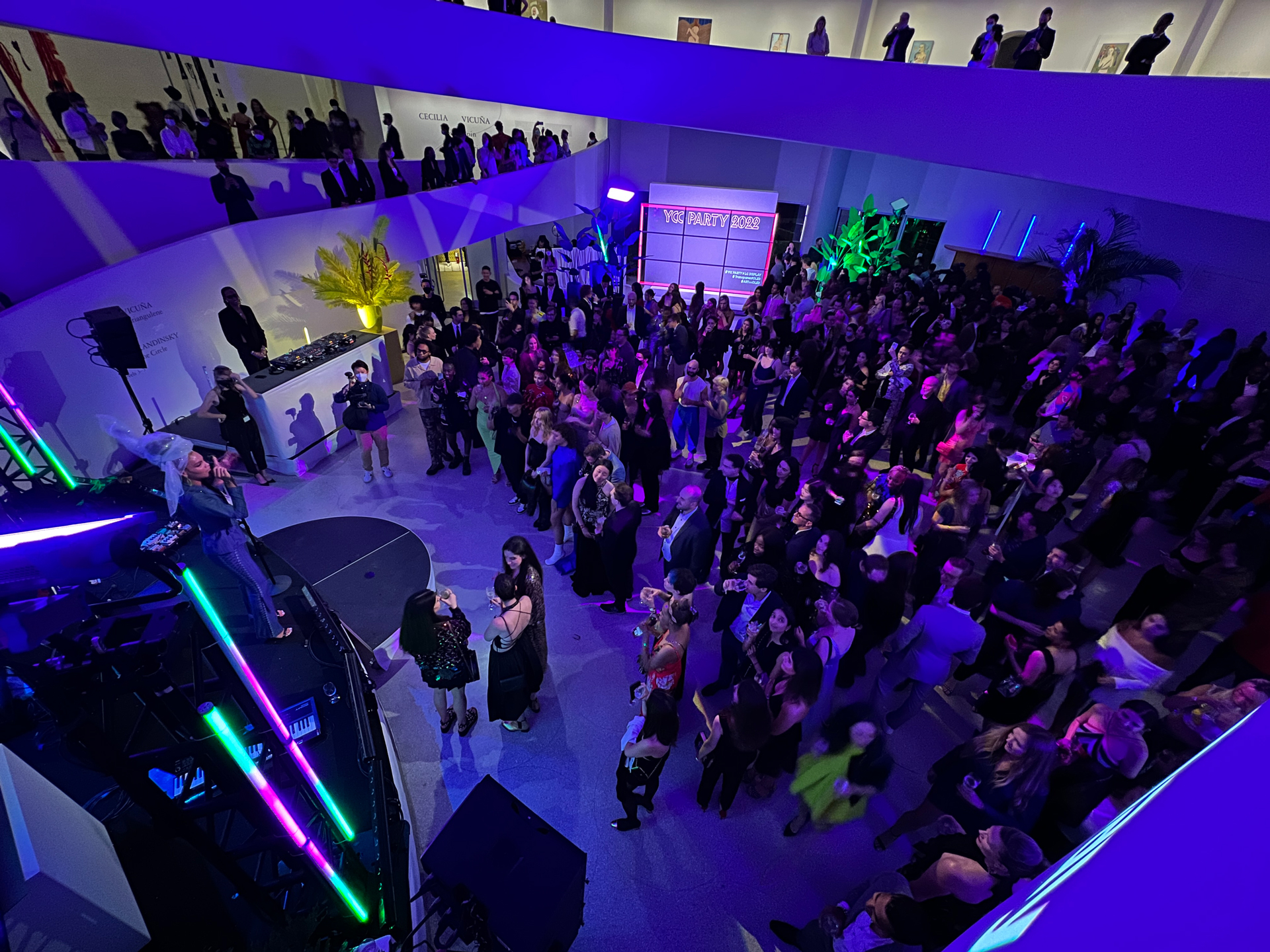
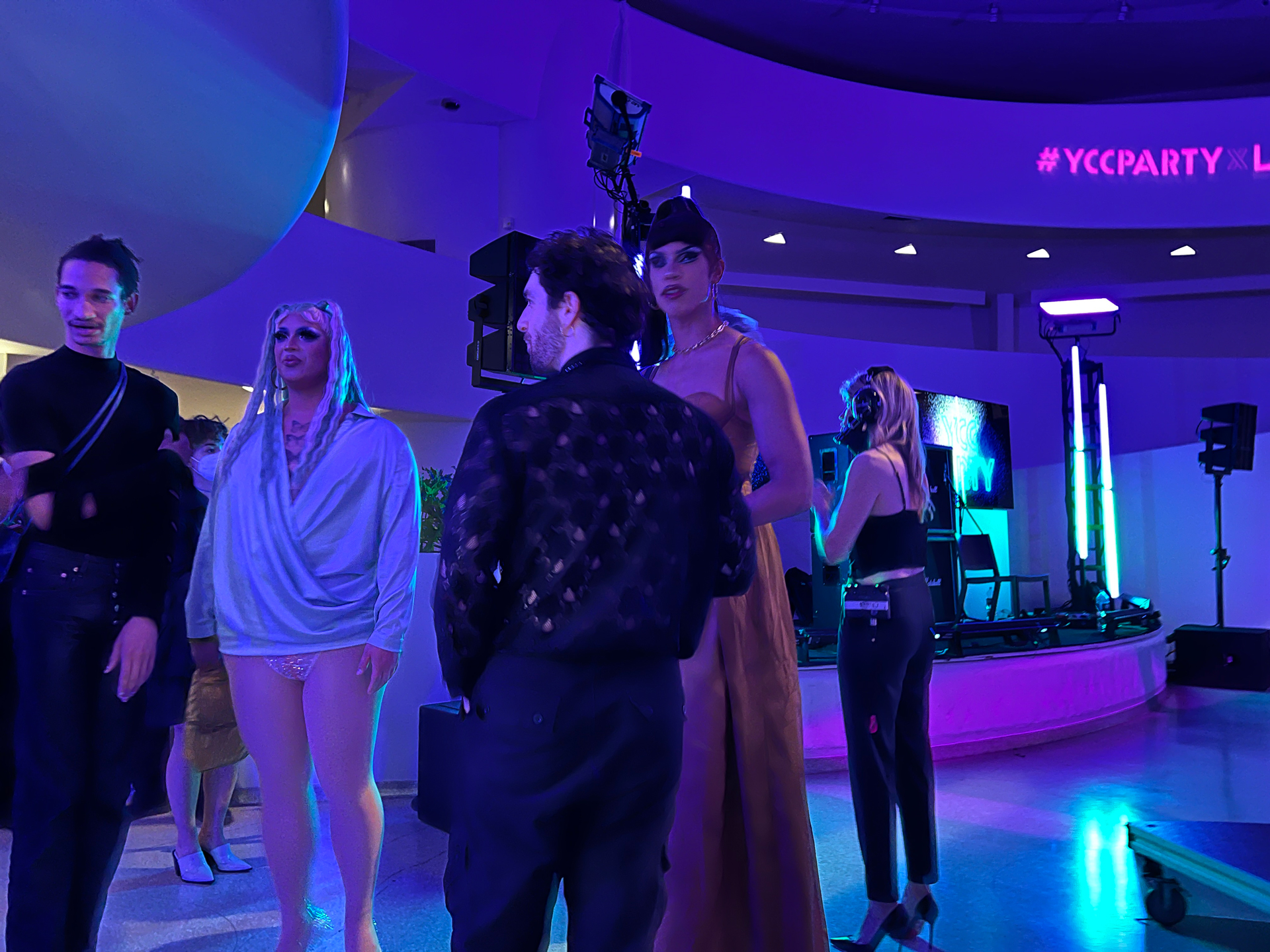
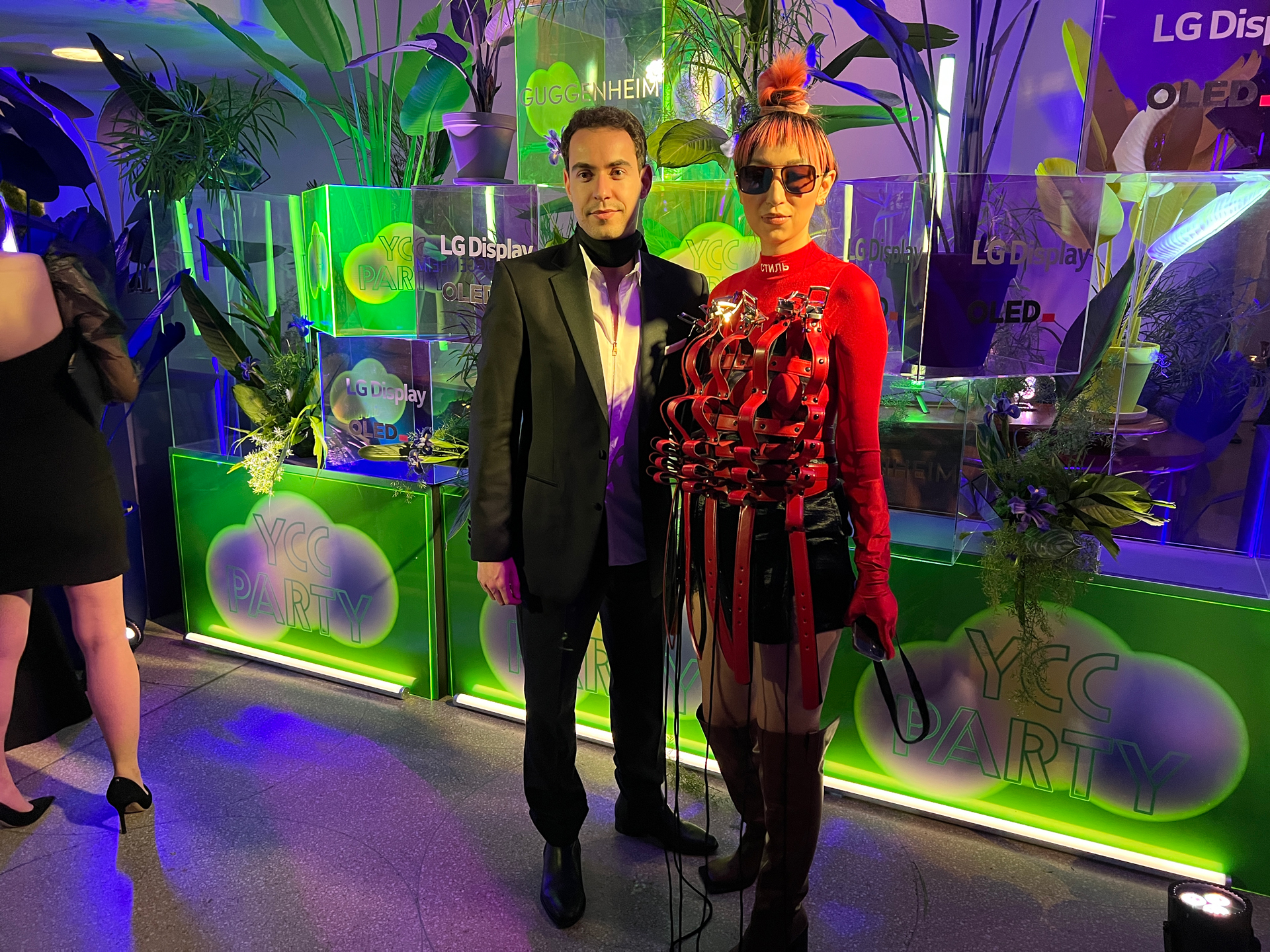
For partygoers, though, it was a fun and brief moment of techno-interaction. As words and designs played across the screens, attendees would step behind the displays and, since they already looked like models, pose. When I asked one of them if they knew anything about the screens, they instead remarked on the hashtags flashing across them: #YCC, which stands for Young Collectors Council (the official name of what is, apparently, a yearly party), and #LGDisplay, which was self-explanatory.
The revelers paused long enough to learn that this event was really about the intersection of art and technology. Guggenheim Chief Curator Naomi Beckwith announced the collaboration, explaining over the still buzzing crowd that, along with its new partner LG, they were launching a new Art and Technology Initiative, a 5-year mission to help support young creators who are merging art and technology in new and exciting ways.
The Initiative will choose one artist a year working in these mediums to receive a $100K honorarium.
Sign up for breaking news, reviews, opinion, top tech deals, and more.
Beckwith called it "An unprecedented investment in technology as a true artistic medium."
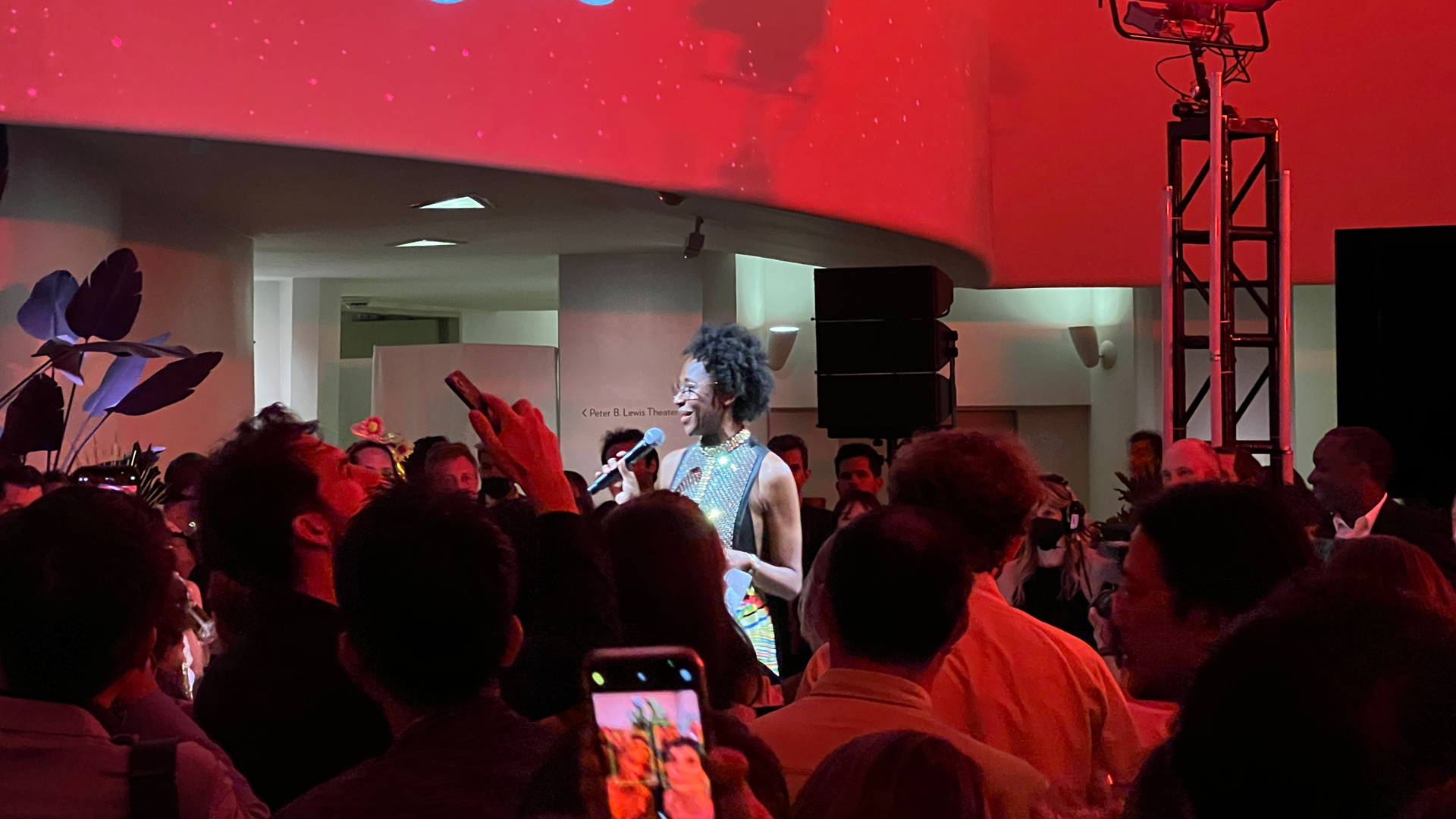
Technology and art have a long history together. One might argue that even before the advent of the computer, the act of creation always required innovation in materials, mediums, and techniques. But we may be at an inflection point. The introduction of NFTs (Non-Fungible Token), for instance, allows artists to create unique digital versions of their art and sell ownership that can be tracked and verified on the Blockchain. It's hard to imagine a deeper melding of art and technology than that. Unsurprisingly, Beckwith did mention NFT art, as well as VR, in her comments regarding the kind of art the initiative would be supporting.
I did run into one fellow, Michael Fischer, a Stanford University Ph.D. student (also the guy wearing a gold jacket and sun-burst headdress), who is launching a Crypto Database company. He heard about the party through a friend and was not there to network for business. Fischer also seemed to have little use for NFTs. He said something about 90% of the Crypto game being scams, but he is clearly focused on the 10% that isn't.
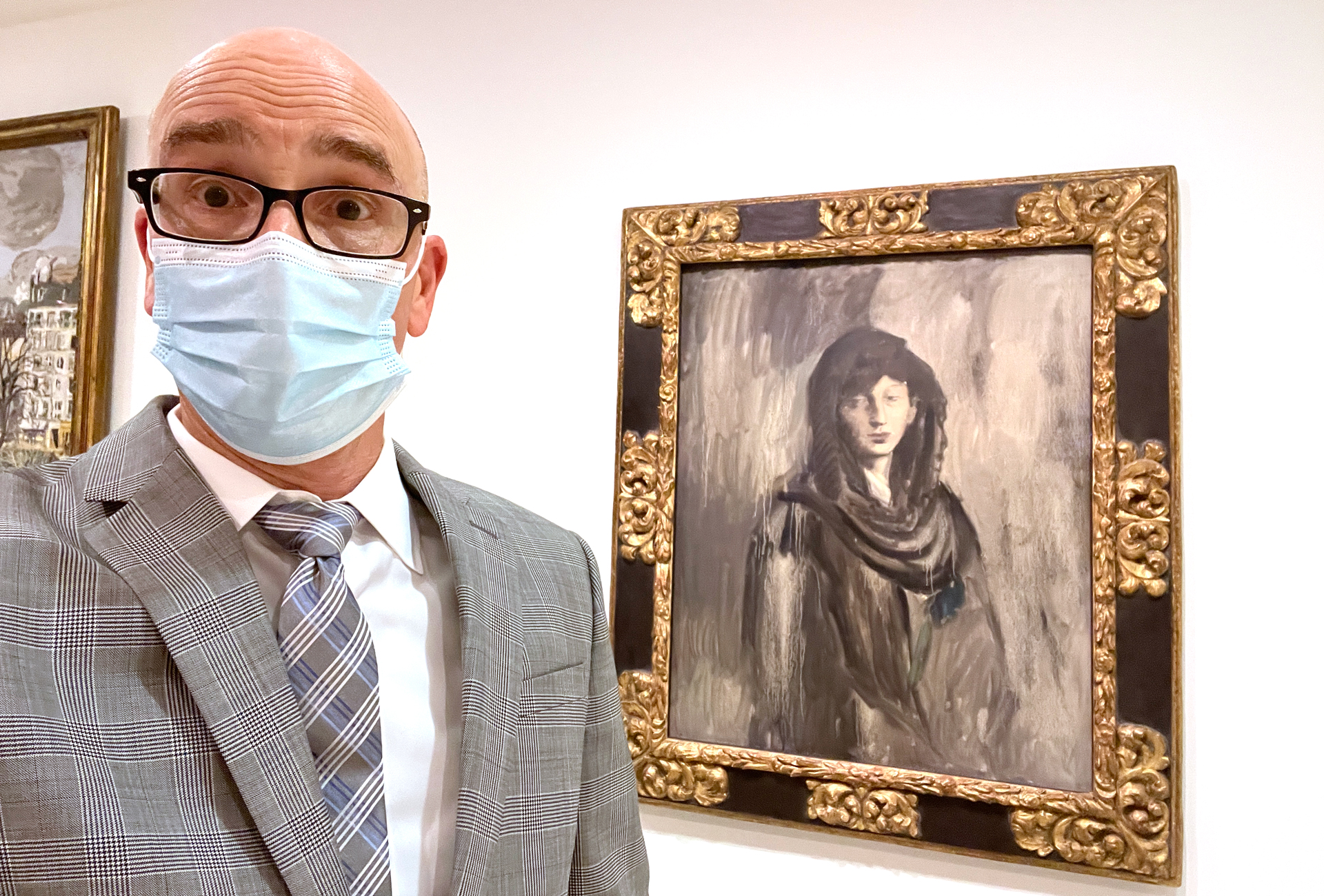
Few of the people at the party, though, could be described as LG or even art fans. Many there were part of an unnamed collective of New York City partygoers who share information about swank parties, often happening at locations like The Frick, The Whitney Museum, and the Guggenheim. They're all well-heeled enough to afford the $350 cover charge (one woman told me she attends three of these parties a week).
Most seemed more interested in each other than the announcement or LG display technology. Still, as the night wore on, many of them began donning the required face masks and ascending The Guggenheim's winding ramps to peruse the art on the floors up above. There they found works by contemporary artists and masters, including Picasso and Monet. Neither one of them used technology to create their art, but I'm sure if the masters were alive today, they'd appreciate LG and the Guggenheim's efforts.
LG Display technology ends up in LG Electronics 4K TVs. Find out about the best of their new sets right here.

A 38-year industry veteran and award-winning journalist, Lance has covered technology since PCs were the size of suitcases and “on line” meant “waiting.” He’s a former Lifewire Editor-in-Chief, Mashable Editor-in-Chief, and, before that, Editor in Chief of PCMag.com and Senior Vice President of Content for Ziff Davis, Inc. He also wrote a popular, weekly tech column for Medium called The Upgrade.
Lance Ulanoff makes frequent appearances on national, international, and local news programs including Live with Kelly and Mark, the Today Show, Good Morning America, CNBC, CNN, and the BBC.